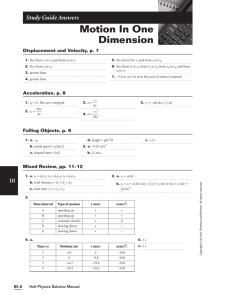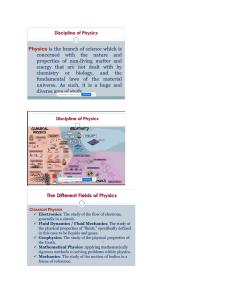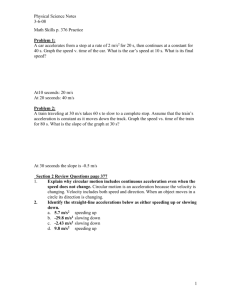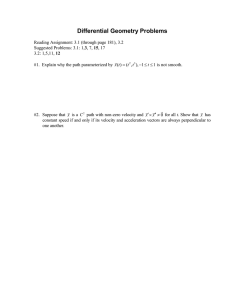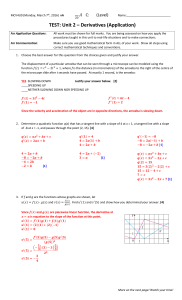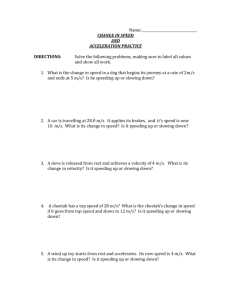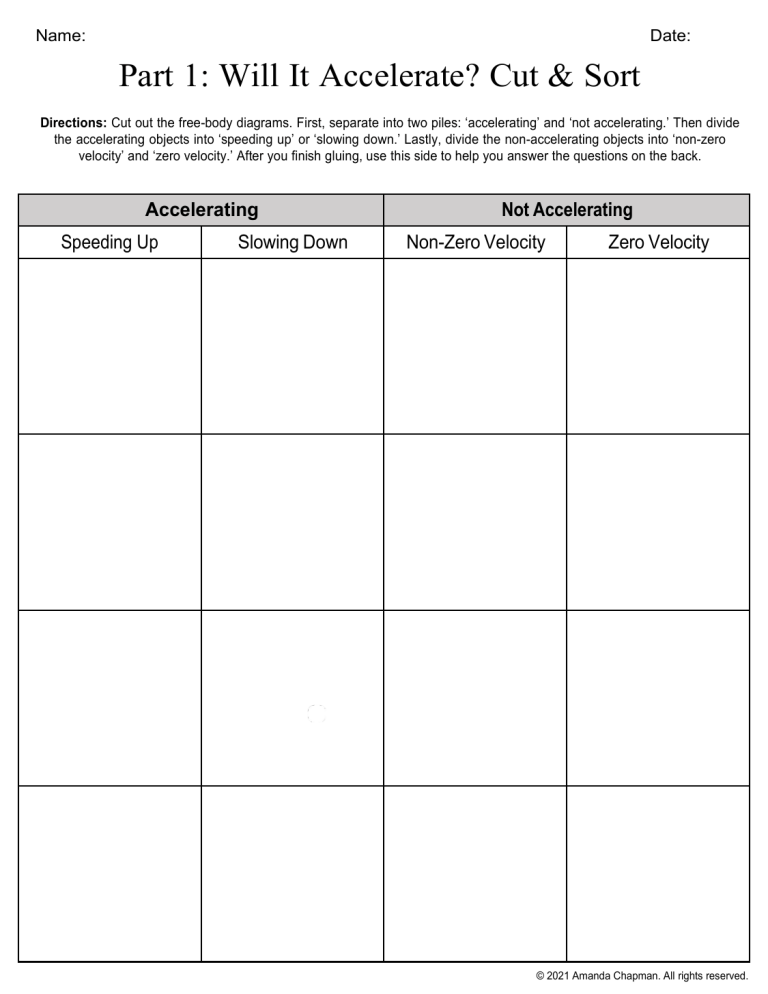
Name: Date: Part 1: Will It Accelerate? Cut & Sort Directions: Cut out the free-body diagrams. First, separate into two piles: ‘accelerating’ and ‘not accelerating.’ Then divide the accelerating objects into ‘speeding up’ or ‘slowing down.’ Lastly, divide the non-accelerating objects into ‘non-zero velocity’ and ‘zero velocity.’ After you finish gluing, use this side to help you answer the questions on the back. Accelerating Speeding Up Slowing Down Not Accelerating Non-Zero Velocity Zero Velocity © 2021 Amanda Chapman. All rights reserved. Will It Accelerate? Cut & Sort 3N 6N 2N 10 N Direction of Object’s Motion 2N 10 N Direction of Object’s Motion 10 N 10 N Direction of Object’s Motion Direction of Object’s Motion 10 N 6N 3N Object’s Position Does Not Change 3N 10 N Direction of Object’s Motion 3N 3N 3N Object’s Position Does Not Change Direction of Object’s Motion 15 N 10 N Direction of Object’s Motion 10 N 2N 2N 10 N 30 N 15 N 15 N Direction of Object’s Motion Object’s Position Does Not Change Object’s Position Does Not Change 15 N 15 N 15 N Direction of Object’s Motion Direction of Object’s Motion 15 N 10 N Direction of Object’s Motion Direction of Object’s Motion 15 N 10 N 10 N 30 N Directions: Cut out these free-body diagrams. First separate into two piles: ‘accelerating’ and ‘not accelerating.’ Then divide the accelerating objects into ‘speeding up’ or ‘slowing down.’ Lastly, divide the non-accelerating objects into ‘non-zero velocity’ and ‘zero velocity’ and glue all pieces down. After you finish gluing, use your answers to help you answer the questions on the back. © 2021 Amanda Chapman. All rights reserved. Name: Date: Part 2: Will It Accelerate? Cut & Sort 1. What do all eight of the accelerating free-body diagrams have in common? 2. What do all eight of the non-accelerating free-body diagrams have in common? 3. Draw your own free-body diagram below that matches each of the criteria: Accelerating Not Moving Moving at Constant Speed 4. Can you tell from a free-body diagram alone if an object is moving at a constant velocity or at rest? Why? 5. Draw your own free-body diagram below that matches each of the criteria: Speeding Up & Moving Left Slowing Down & Moving Left Speeding Up & Moving Right Slowing Down & Moving Right 6. Does positive acceleration always mean speeding up? Explain with an example. 7. Provide an example to explain that negative acceleration does not always mean slowing down. 8. An object experiencing zero net force could be …. (circle all that apply): a) Speeding up b) Slowing down c) Not moving d) Moving at a constant velocity 9. An object experiencing non-zero net force could be … (circle all that apply): a) Speeding up b) Slowing down c) Not moving d) Moving at a constant velocity © 2021 Amanda Chapman. All rights reserved.
